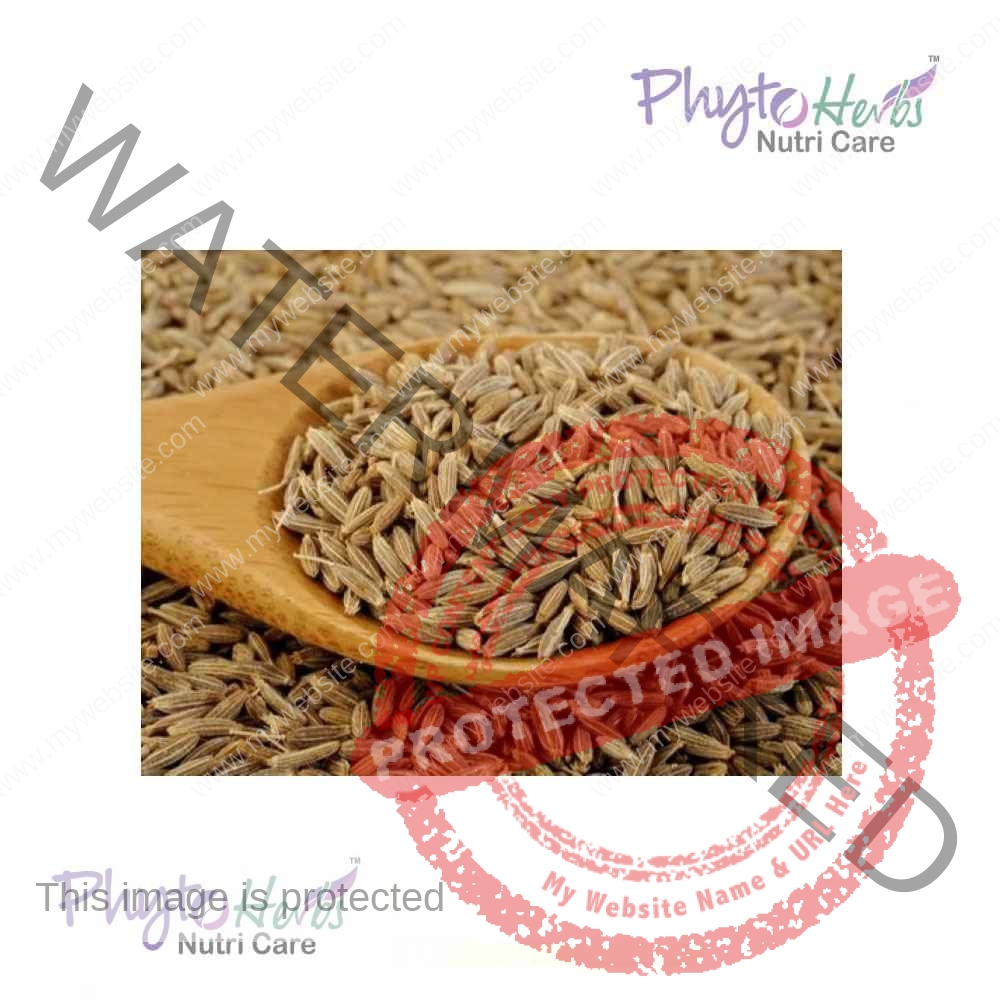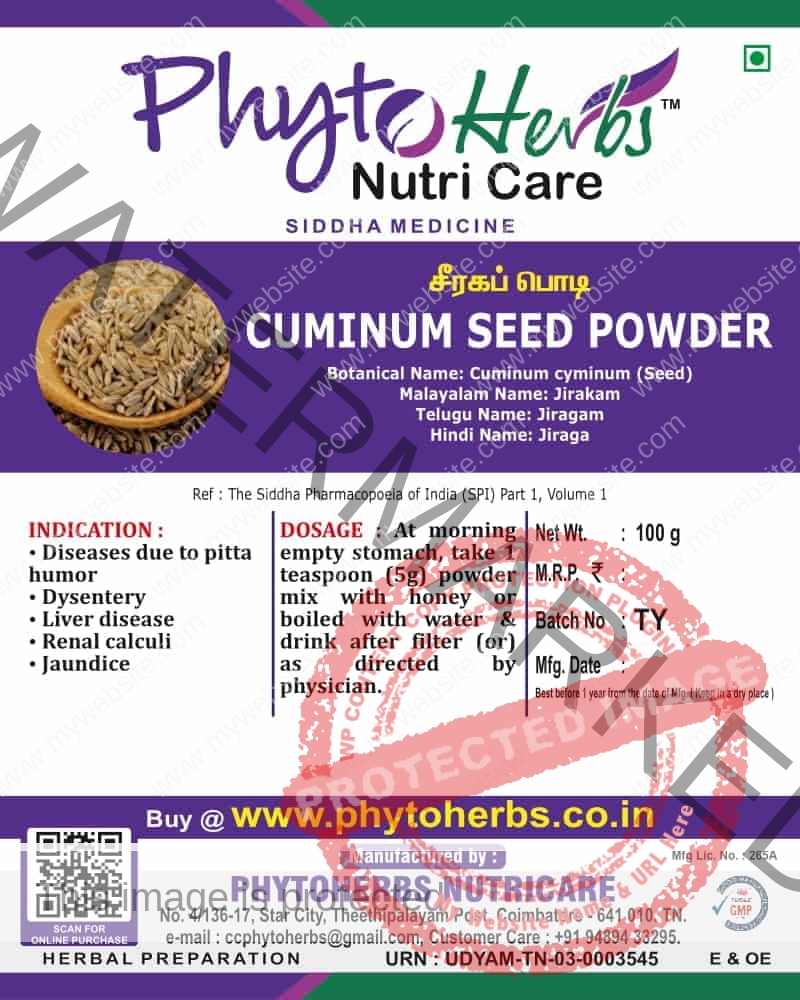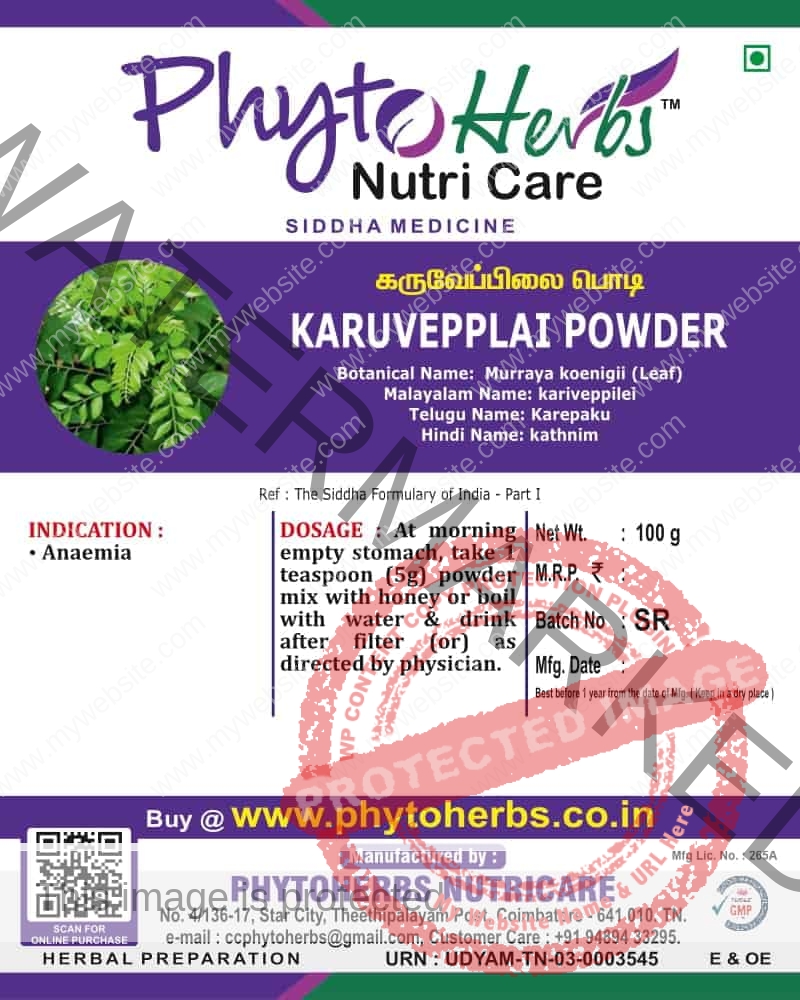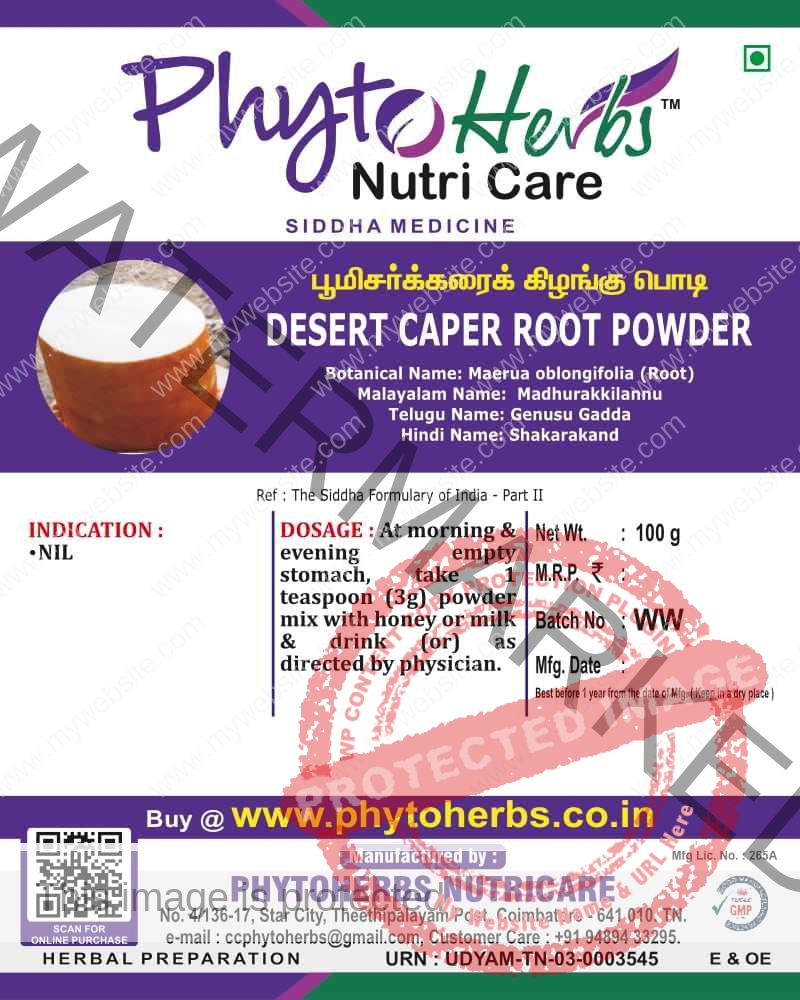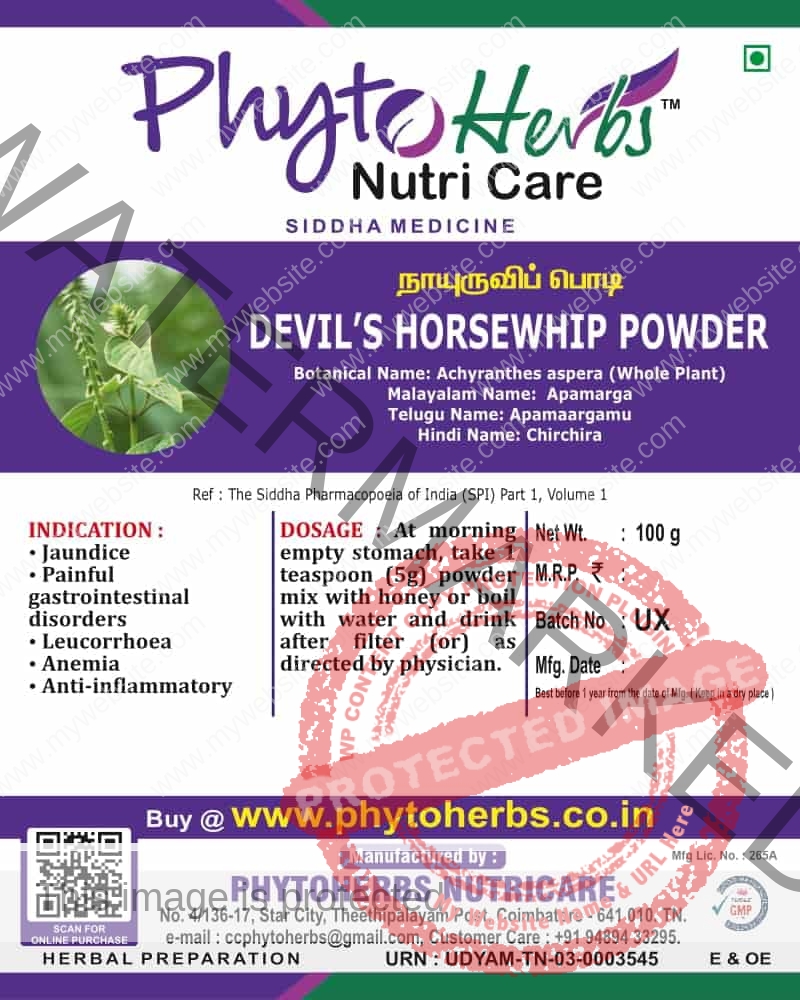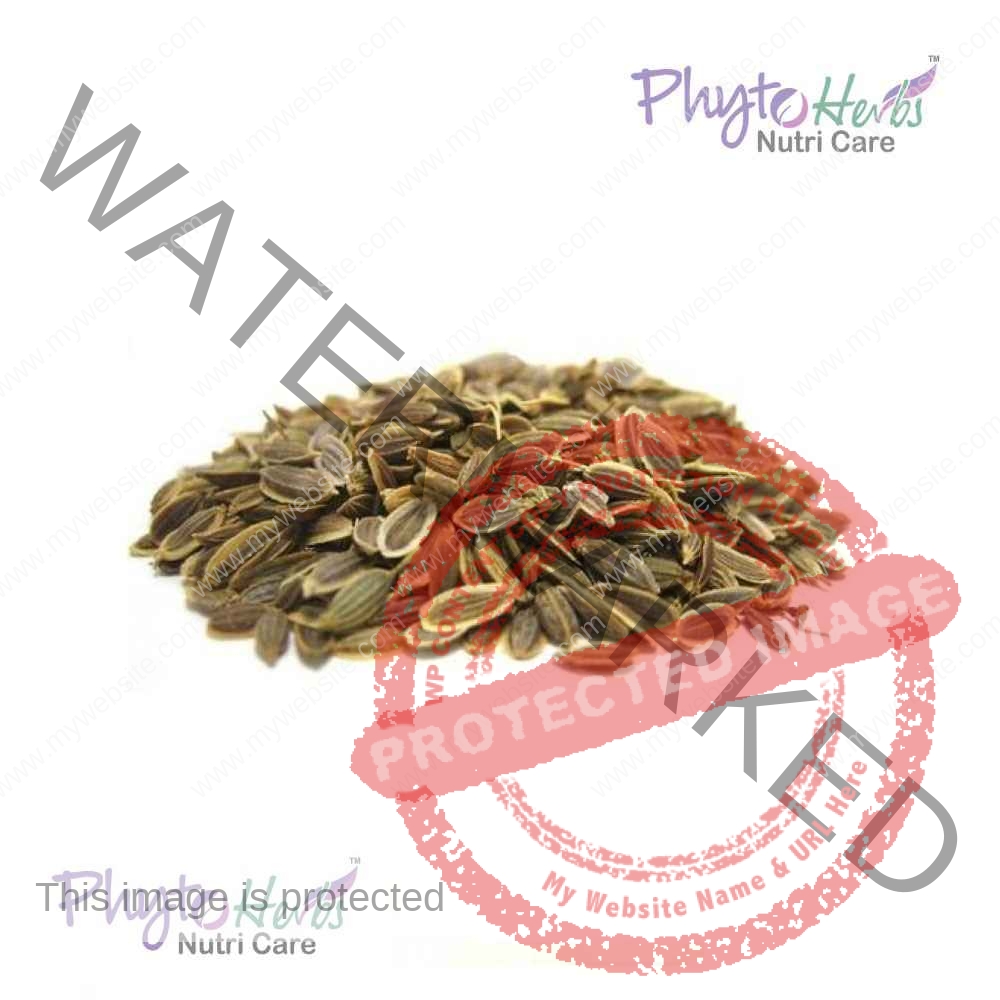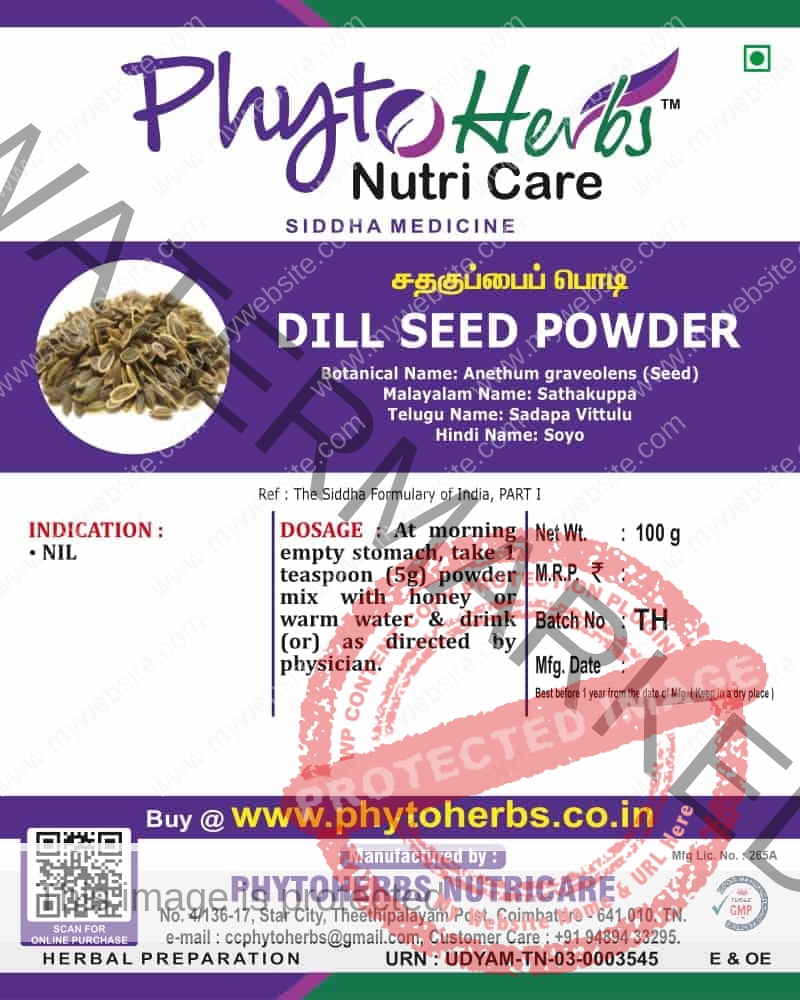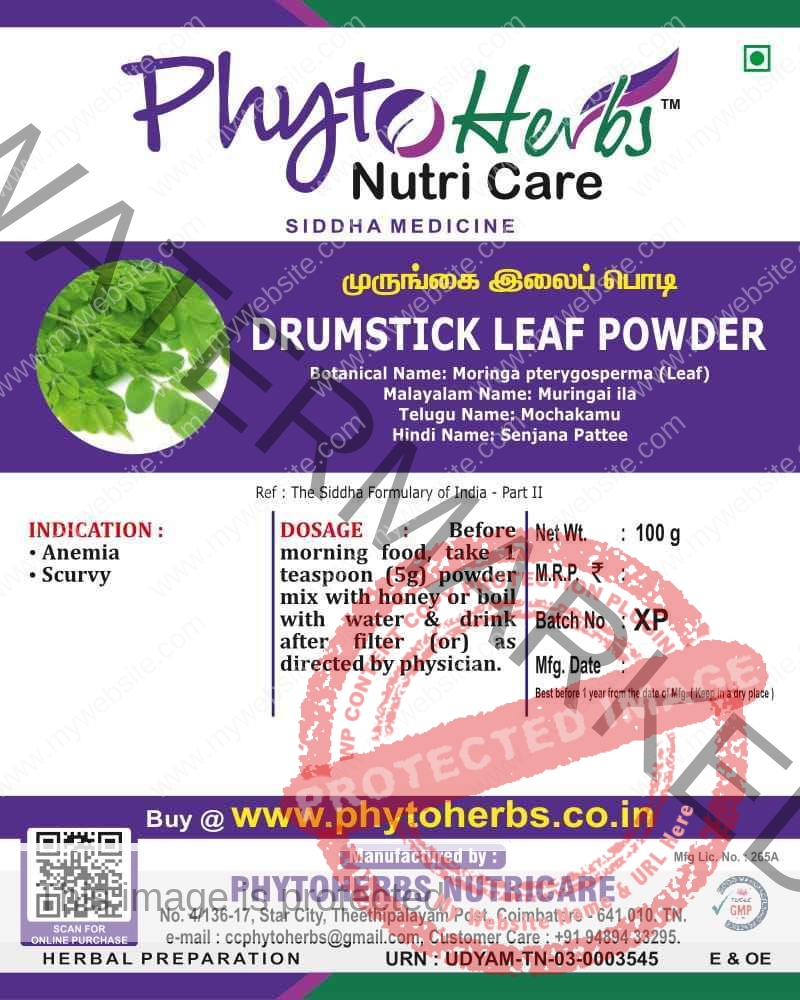Showing 73–84 of 275 results
Show filter-
Cuminum Seed Powder / சீரகப் பொடி
₹45.00 – ₹90.00Botanical Name: Cuminum cyminum (Seed)
Tamil Name: சீரகப் பொடி / Jeerakap Podi
Malayalam Name: ജീരകം / Jirakam
Telugu Name: జీరకం / Jiragam
Hindi Name: जिरगा / JiragaDescription:
Cuminum showed wide range of pharmacological activities viz., antimicrobial, antioxidant, anticancer, hypolipidemic, cardiovascular, central nervous, respiratory, immunological, anti-inflammatory, analgesic antipyretic and many other pharmacological effects. In addition, pharmacological studies further revealed that Cuminum cyminum exerted antimicrobial, insecticidal, anti-inflammatory, analgesic, antioxidant, anticancer, antidiabetic, antiplatelet aggregation, hypotensive, bronchodilatory, immunological, contraceptive, anti-amyloidogenic, anti-osteoporotic, aldose reductase, alpha-glucosidase and tyrosinase inhibitory effects, protective and central nervous effects.
Traditional uses: In traditional medicine, cumin was used to treat hoarseness, jaundice, dyspepsia and diarrhoea. Its seeds were used for stomachic, diuretic, carminative, stimulant, astringent and abortifacient properties.
Therapeutic Uses: அழல் நோய்கள் (Diseases due to deranged pitta Humour), சீதக்கழிச்சல் (Amoebic dysentery), ஈரல் நோய் (Liver disease), கல்லடைப்பு (Renal Calculi), காமாலை, குன்மம் (Painful gastro intestinal disorders with indigestion).Dosage: At morning empty stomach, take 1 teaspoon (5g) powder mix with honey or boiled with water & drink after filter (or) as directed by physician.
-
Cuminum Seed Powder / சீரகப் பொடி
₹40.00Botanical Name: Cuminum cyminum (Seed)
Tamil Name: சீரகப் பொடி / Jeerakap Podi
Malayalam Name: ജീരകം / Jirakam
Telugu Name: జీరకం / Jiragam
Hindi Name: जिरगा / JiragaDescription: Cuminum showed wide range of pharmacological activities viz., antimicrobial, antioxidant, anticancer, hypolipidemic, cardiovascular, central nervous, respiratory, immunological, anti-inflammatory, analgesic antipyretic and many other pharmacological effects. In addition, pharmacological studies further revealed that Cuminum cyminum exerted antimicrobial, insecticidal, anti-inflammatory, analgesic, antioxidant, anticancer, antidiabetic, antiplatelet aggregation, hypotensive, bronchodilatory, immunological, contraceptive, anti-amyloidogenic, anti-osteoporotic, aldose reductase, alpha-glucosidase and tyrosinase inhibitory effects, protective and central nervous effects.
Traditional uses: In traditional medicine, cumin was used to treat hoarseness, jaundice, dyspepsia and diarrhoea. Its seeds were used for stomachic, diuretic, carminative, stimulant, astringent and abortifacient properties.
Therapeutic Uses: அழல் நோய்கள் (Diseases due to deranged pitta Humour), சீதக்கழிச்சல் (Amoebic dysentery), ஈரல் நோய் (Liver disease), கல்லடைப்பு (Renal Calculi), காமாலை, குன்மம் (Painful gastro intestinal disorders with indigestion).
Dosage: At morning empty stomach, take 1 teaspoon (5g) powder mix with honey or boiled with water & drink after filter (or) as directed by physician.
-
Curry Leaf Powder / கருவேப்பிலை பொடி
₹30.00Botanical Name: Murraya koenigii (Leaf)
Tamil Name: கருவேப்பிலை பொடி / Karuveppilai Podi
Malayalam Name: കറിവേപ്പില / kariveppilei
Telugu Name: కరేపాకు / Karepaku
Hindi Name: कथनीम / kathnimDescription: The “Magical plant of Indian Spice” Murraya koenigii (Curry Leaf) has served humankind not only as food enhancer but also serve as folk medication to cure many disorders. Traditional Uses: The tribal communities has used many parts of the Murraya koenigiito to cure dysentery disorders, renal pain, stomach upsets and morning sickness. The green leaves eaten as raw for curing dysentery, diarrhea. Roasted leaves were given in order to stop emesis. Furthermore, Murraya koenigii were also used as blood purifier, tonic and cure for stomachache and used as flavoring agents in curries and chutneys. Curry leaves were also used as calcium source to those having calcium deficiency. However, it also contains Vitamin A, Vitamin B and B2, Vitamin C and iron. For the treatment of morning sickness, fresh juice of curry leaves together with lime juice and sugar is given and it is also applicable for vomiting due to indigestion. In case of stomach upsets, the curry leaves is grounded to a fine paste and mixed with buttermilk and consumed orally.
Dosage: Before morning and noon food, take 1 teaspoon (5g) powder mix with honey or butter milk & drink (or) as directed by physician.
-
Curry Leaf Powder / கருவேப்பிலை பொடி
₹60.00 – ₹300.00Botanical Name: Murraya koenigii (Leaf)
Tamil Name: கருவேப்பிலை பொடி / Karuveppilai Podi
Malayalam Name: കറിവേപ്പില / kariveppilei
Telugu Name: కరేపాకు / Karepaku
Hindi Name: कथनीम / kathnimDescription:
The “Magical plant of Indian Spice” Murraya koenigii (Curry Leaf) has served humankind not only as food enhancer but also serve as folk medication to cure many disorders.
Traditional Uses: The tribal communities has used many parts of the Murraya koenigiito to cure dysentery disorders, renal pain, stomach upsets and morning sickness. The green leaves eaten as raw for curing dysentery, diarrhea. Roasted leaves were given in order to stop emesis. Furthermore, Murraya koenigii were also used as blood purifier, tonic and cure for stomachache and used as flavoring agents in curries and chutneys. Curry leaves were also used as calcium source to those having calcium deficiency. However, it also contains Vitamin A, Vitamin B and B2, Vitamin C and iron. For the treatment of morning sickness, fresh juice of curry leaves together with lime juice and sugar is given and it is also applicable for vomiting due to indigestion. In case of stomach upsets, the curry leaves is grounded to a fine paste and mixed with buttermilk and consumed orally.Dosage: Before morning and noon food, take 1 teaspoon (5g) powder mix with honey or butter milk & drink (or) as directed by physician.
-
Desert Caper Root Powder / பூமிசர்கரைக் கிழங்கு பொடி
₹70.00 – ₹350.00Botanical Name: Maerua oblongifolia (Root)
Tamil Name: பூமிசர்கரைக் கிழங்கு பொடி / Poomisarkarai kizhangu Podi
Malayalam Name: മധുരക്കിഴങ്ങ് / Madhurakkilannu
Telugu Name: గెనుసు గడ్డ / Genusu Gadda
Hindi Name: शकरकंद / ShakarakandDescription:
Maerua oblongifolia (Desert Caper) is one of the most commonly used plants to cure various diseases like stomach ache, urinary calculi, diabetes, fever, skin infections, epilepsy, pruritis, cough, and abdominal colic.Dosage: At morning & evening empty stomach, take 1 teaspoon (3g) powder mix with honey or milk & drink (or) as directed by physician.
-
Desert Caper Root Powder / பூமிசர்கரைக் கிழங்கு பொடி
₹30.00Botanical Name: Maerua oblongifolia (Root)
Tamil Name: பூமிசர்கரைக் கிழங்கு பொடி / Poomisarkarai kizhangu Podi
Malayalam Name: മധുരക്കിഴങ്ങ് / Madhurakkilannu
Telugu Name: గెనుసు గడ్డ / Genusu Gadda
Hindi Name: शकरकंद / ShakarakandDescription: Maerua oblongifolia (Desert Caper) is one of the most commonly used plants to cure various diseases like stomach ache, urinary calculi, diabetes, fever, skin infections, epilepsy, pruritis, cough, and abdominal colic.
Dosage: At morning & evening empty stomach, take 1 teaspoon (3g) powder mix with honey or milk & drink (or) as directed by physician.
-
Devil’s Horsewhip Powder / நாயுருவிப் பொடி
₹25.00Botanical Name: Achyranthes aspera (Whole Plant)
Tamil Name: நாயுருவிப் பொடி / Naayuruvi Podi
Malayalam Name: അപമാർഗ / Apamarga
Telugu Name: అపామార్గము / Apamaargamu
Hindi Name: चिरचरा / ChirchiraDescription: Achyranthes aspera Linn. belongs to family Amaranthaceae, commonly known Devil’s Horsewhip in English, is an annual herb that grows throughout India.
Traditional Uses: Devil’s Horsewhip is known for diuretic and hepatoprotective properties and used to cure several diseases viz., malarial fever, dysentery, asthma, hypertension and diabetics. Most recently, A. aspera is widely studied for its medicinal properties and reported to have immunostimulatory properties, wound healing activity, antioxidant activity, hemolytic activity, anti-inflammatory, antibacterial activity and antifungal activity. By Ayurvedic, Siddha, and Unani practitioners use different parts of the plant to treat leprosy, asthma, fistula, piles, arthritis, wound, insect and snake bite, renal and cardiac dropsy, kidney stone, diabetes, dermatological disorders, gynecological disorders, gonorrhea, malaria, pneumonia, fever, cough, pyorrhea, dysentery, rabies, hysteria, and toothache.
Therapeutic Uses: காமாலை, குன்மம் (Painful gastro intestinal disorders with indigestion), வெள்ளை (Leucorrhoea), வெளுப்பு நோய் (Anaemia), வீக்கம் (Swelling).
Dosage: At morning empty stomach, take 1 teaspoon (5 g) powder mix with honey or boil with water and drink after filter (or) as directed by physician.
-
Devil’s Horsewhip Powder / நாயுருவிப் பொடி
₹60.00 – ₹300.00Botanical Name: Achyranthes aspera (Whole Plant)
Tamil Name: நாயுருவிப் பொடி / Naayuruvi Podi
Malayalam Name: അപമാർഗ / Apamarga
Telugu Name: అపామార్గము / Apamaargamu
Hindi Name: चिरचरा / ChirchiraDescription:
Achyranthes aspera Linn. belongs to family Amaranthaceae, commonly known Devil’s Horsewhip in English, is an annual herb that grows throughout India.
Traditional Uses: Devil’s Horsewhip is known for diuretic and hepatoprotective properties and used to cure several diseases viz., malarial fever, dysentery, asthma, hypertension and diabetics. Most recently, A. aspera is widely studied for its medicinal properties and reported to have immunostimulatory properties, wound healing activity, antioxidant activity, hemolytic activity, anti-inflammatory, antibacterial activity and antifungal activity. By Ayurvedic, Siddha, and Unani practitioners use different parts of the plant to treat leprosy, asthma, fistula, piles, arthritis, wound, insect and snake bite, renal and cardiac dropsy, kidney stone, diabetes, dermatological disorders, gynecological disorders, gonorrhea, malaria, pneumonia, fever, cough, pyorrhea, dysentery, rabies, hysteria, and toothache.
Therapeutic Uses: காமாலை, குன்மம் (Painful gastro intestinal disorders with indigestion), வெள்ளை (Leucorrhoea), வெளுப்பு நோய் (Anaemia), வீக்கம் (Swelling).Dosage: At morning empty stomach, take 1 teaspoon (5 g) powder mix with honey or boil with water and drink after filter (or) as directed by physician.
-
Dill Seed Powder / சதகுப்பைப் பொடி
₹45.00Botanical Name: Anethum graveolens (Seed)
Tamil Name: சதகுப்பைப் பொடி / Sadhakuppai Podi
Malayalam Name: ശതകുപ്പ / Sathakuppa
Telugu Name: సదాపా విత్తులు / Sadapa Vittulu
Hindi Name: सोयो / SoyoDescription: Anethum graveolens (Dill) has been use as ayurvedic medicine since the ancient times and it is popularly used as spices. It is an aromatic herb, which belongs to the family Apiaceae. There are some of the ayurvedic uses of the seeds of the plant which are carminative, stomachic and diuretic. In unani known as soya, in siddha known as sadakuppai, in Sanskrit known as shatpushpi and in hindi known as sowa.
Traditional Uses: Traditionaly, Anethum graveolens possess a wide range of anti-inflammtory activities. Also, pharmacological studies show antimicrobial, antihyperlipidemic and antihypercholesterolemic activities of dill seeds. It also benefits for Osteoporosis and bone health (Protecting bone mineral density), Managing diabetes (Managing insulin level), Carminative benefits (prevent the embarrassing condition of excessive gas), Immunity hike and Hiccup issues.
Dosage: At morning empty stomach, take 1 teaspoon (5g) powder mix with honey or warm water & drink (or) as directed by physician.
-
Dill Seed Powder / சதகுப்பைப் பொடி
₹100.00 – ₹500.00Botanical Name: Anethum graveolens (Seed)
Tamil Name: சதகுப்பைப் பொடி / Sadhakuppai Podi
Malayalam Name: ശതകുപ്പ / Sathakuppa
Telugu Name: సదాపా విత్తులు / Sadapa Vittulu
Hindi Name: सोयो / SoyoDescription:
Anethum graveolens (Dill) has been use as ayurvedic medicine since the ancient times and it is popularly used as spices. It is an aromatic herb, which belongs to the family Apiaceae. There are some of the ayurvedic uses of the seeds of the plant which are carminative, stomachic and diuretic. In unani known as soya, in siddha known as sadakuppai, in Sanskrit known as shatpushpi and in hindi known as sowa.
Traditional Uses: Traditionaly, Anethum graveolens possess a wide range of anti-inflammtory activities. Also, pharmacological studies show antimicrobial, antihyperlipidemic and antihypercholesterolemic activities of dill seeds. It also benefits for Osteoporosis and bone health (Protecting bone mineral density), Managing diabetes (Managing insulin level), Carminative benefits (prevent the embarrassing condition of excessive gas), Immunity hike and Hiccup issues.Dosage: At morning empty stomach, take 1 teaspoon (5g) powder mix with honey or warm water & drink (or) as directed by physician.
-
Drumstick Leaf Powder / முருங்கை இலைப் பொடி
₹30.00Botanical Name: Moringa pterygosperma (Leaf)
Tamil Name: முருங்கை இலைப் பொடி / Murungai ilai Podi
Malayalam Name: മുരിങ്ങ ഇല / Muringai ila
Telugu Name: మోచకము / Mochakamu
Hindi Name: सेंजन पत्ती / Senjana PatteeDescription: Moringa pterygosperma (Drumstick) is a multi-purpose herbal plant used as human food and an alternative for medicinal purposes worldwide. Moringa contains essential amino acids, carotenoids in leaves, and or constituent in food preparation. Some nutritional evaluation has been carried out in leaves and stems.
Therapeutic Properties: The leaves are anti-inflammatory, anodyne, anthelmintic, ophthalmic and rich in vitamin A and C. They are useful in scurvy, vitiated conditions of kapha and vata, wounds, tumours, inflammations and helminthasis. It also used for வெளுப்பு நோய் (Anaemia).
Dosage: Before morning food, take 1 teaspoon (5g) powder mix with honey or boiled with water & drink (or) as directed by physician.
-
Drumstick Leaf Powder / முருங்கை இலைப் பொடி
₹60.00 – ₹300.00Botanical Name: Moringa pterygosperma (Leaf)
Tamil Name: முருங்கை இலைப் பொடி / Murungai ilai Podi
Malayalam Name: മുരിങ്ങ ഇല / Muringai ila
Telugu Name: మోచకము / Mochakamu
Hindi Name: सेंजन पत्ती / Senjana PatteeDescription:
Moringa pterygosperma (Drumstick) is a multi-purpose herbal plant used as human food and an alternative for medicinal purposes worldwide. Moringa contains essential amino acids, carotenoids in leaves, and or constituent in food preparation. Some nutritional evaluation has been carried out in leaves and stems.
Therapeutic Properties: The leaves are anti-inflammatory, anodyne, anthelmintic, ophthalmic and rich in vitamin A and C. They are useful in scurvy, vitiated conditions of kapha and vata, wounds, tumours, inflammations and helminthasis. It also used for வெளுப்பு நோய் (Anaemia).Dosage: Before morning food, take 1 teaspoon (5g) powder mix with honey or boiled with water & drink (or) as directed by physician.


